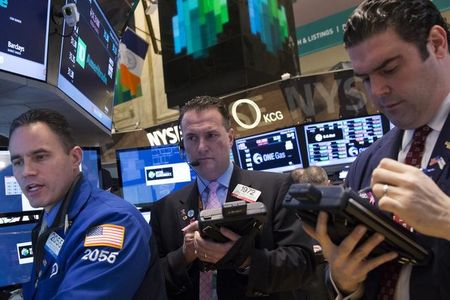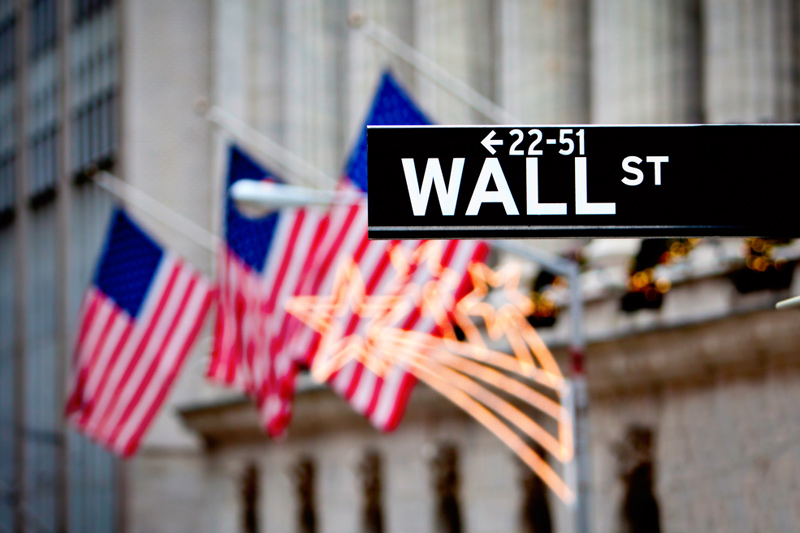By Chuck Mikolajczak
NEW YORK (Reuters) - The S&P 500 was unable to hold the 2,000 mark after moving above the milestone level for the first time on Monday, but still managed to close at a record high, buoyed by financials and biotechnology stocks.
The significance of the milestone was more psychological than fundamental, and it represents the high point of a nearly six-year rally that has boosted retirement accounts for Americans from Wall Street to Main Street, though the gains have largely benefited wealthier Americans. On a total-return basis the S&P 500 has more than tripled from its 2009 low hit during the financial crisis.
The day's gains were broad, with each of the 10 primary sectors on the benchmark S&P index advancing.
"Psychologically it is somewhat important to close above 2,000 but it only becomes of increasing importance if we see the markets vacillate around this number for an extended period," said Sean Lynch, managing director of global equity strategy for Wells Fargo Private Bank in Omaha, Nebraska.
"(Investors) are going back to the fundamentals and the strong earnings season we saw in the U.S. in the second quarter and an improving economy."
The index has managed to climb despite cautious signals investors, including a reduction in stimulus from the Federal Reserve and a simmering conflict between Ukraine and Russia. In the latest economic data, reads on both the U.S. services sector and the housing market came in below forecasts but indicated the economy remains on a solid growth path.
Biotech stocks, which have recovered from a sharp drop earlier this year to become a primary driver of recent equity gains, continued to outperform on Monday. The Nasdaq Biotech index rose 2.4 percent and is up 8.6 percent for the month.
InterMune shares surged 35.4 percent to $72.85 to help lift the sector after it agreed to be acquired by Roche Holding AG for $8.3 billion in cash, the latest vote of confidence in a sector that many, including Federal Reserve Chair Janet Yellen, worry is overvalued.
The Dow Jones industrial average rose 75.65 points or 0.44 percent, to 17,076.87, the S&P 500 gained 9.52 points or 0.48 percent, to 1,997.92 and the Nasdaq Composite added 18.80 points or 0.41 percent, to 4,557.35.
Financial shares were among the strongest of the day, rising on expectations Europe may see more aggressive monetary stimulus. Morgan Stanley, which has heavy exposure to Europe, rose 2.2 percent to $34.20 while Goldman Sachs Group Inc, a Dow component, was up 1.4 percent at $177.87. The S&P financial sector gained 0.8 percent.
U.S. stocks have been strong of late. The Dow and S&P have notched gains in seven of the last 10 sessions while the Nasdaq has climbed in eight of the last 10 trading days.
Burger King is in talks to acquire Canadian coffee and doughnut chain Tim Hortons Inc in a deal that would be structured as a so-called tax inversion transaction to move Burger King's domicile to Canada, which has lower overall corporate taxes. Shares of Burger King jumped 19.5 percent to $32.40 while U.S. shares of Tim Hortons shot up 18.9 percent to $74.72.
Volume was light, with about 4.07 billion shares traded on U.S. exchanges, well below the 5.51 billion average so far this month, according to data from BATS Global Markets.

Advancing stocks outnumbered declining ones on the NYSE by 1,858 to 1,172, while on the Nasdaq, advancers beat decliners 1,573 to 1,131.
(Reporting by Chuck Mikolajczak; Editing by James Dalgleish)
